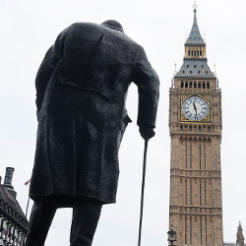Small charities could be exempted from the Fundraising Preference Service, Parliament heard yesterday during a debate on charities legislation.
Rob Wilson, minister for civil society, made the comments at the second reading for the Charities (Protection and Social Investment) Bill which took place in the House of Commons.
Wilson said: “We are keen to minimise the burden of regulation on small charities. For example, the new reporting requirement on fundraising in clause 14 will apply only to charities with incomes over £1 million, and the new fundraising self-regulator will need to consider exemptions for small charities from the Fundraising Preference Service.”
Clause 14 states that charities must include summaries in their annual report of their fundraising activities, and actions undertaken by a third party. Reports would also have to include the number of complaints received by the charity or third person about fundraising activities.
Wilson also said that, should self-regulation not work, he will “stand ready to step in to safeguard the public and their trust in charities”.
He said that, for that purpose, he seeks to add “two reserve powers to the Bill: one to compel charities to sign up to the new regulator and a second to mandate the Charity Commission with regulation should the sector fail to rise to the challenge”.
Susan Elan Jones, MP for Clwyd South, praised the sector for its introduction of the Fundraising Preference Service. She said: “There is widespread agreement across the voluntary sector and among the general public… about the problem with predatory fundraising when it is done in an unethical way.”
Matthew Hancock, minister for the Cabinet Office, told the House of Commons that he regards the Etherington package, including the FPS and a move to opt-in for further contact, as the “minimum necessary to rebuild public trust”.
Hancock also said that the recommendations for self-regulation must be undertaken in full, otherwise statutory regulation will be put in place.
He said: “Some people have rightly asked what will happen if self-regulation fails. We want it to work, but we are also clear that practices must change. In committee, we intend to bring forward amendments that will strengthen the Government’s reserve powers to intervene if the self-regulation recommended by Sir Stuart fails.
“Predatory fundraising targeted at vulnerable people is wrong. It has shaken public confidence in charities and we are determined to stamp it out.”
Robert Jenrick, Conservative MP for Newark, raised the point that the charity sector is the only sector in which the smaller and more local organisations are also negatively impacted by the actions of the larger ones.
He said: “As the head of a charity based in my constituency recently told me, charities are different from many other parts of our society. When large businesses get knocked by scandals, the public turn towards the little guys and confidence in them rises. If there is a horsemeat scandal at Tesco, we all go to our local butchers and sales there start to rise. Charities seem to have the inverse situation. If the big charities get hit by scandals, the little guys suffer as well.”








